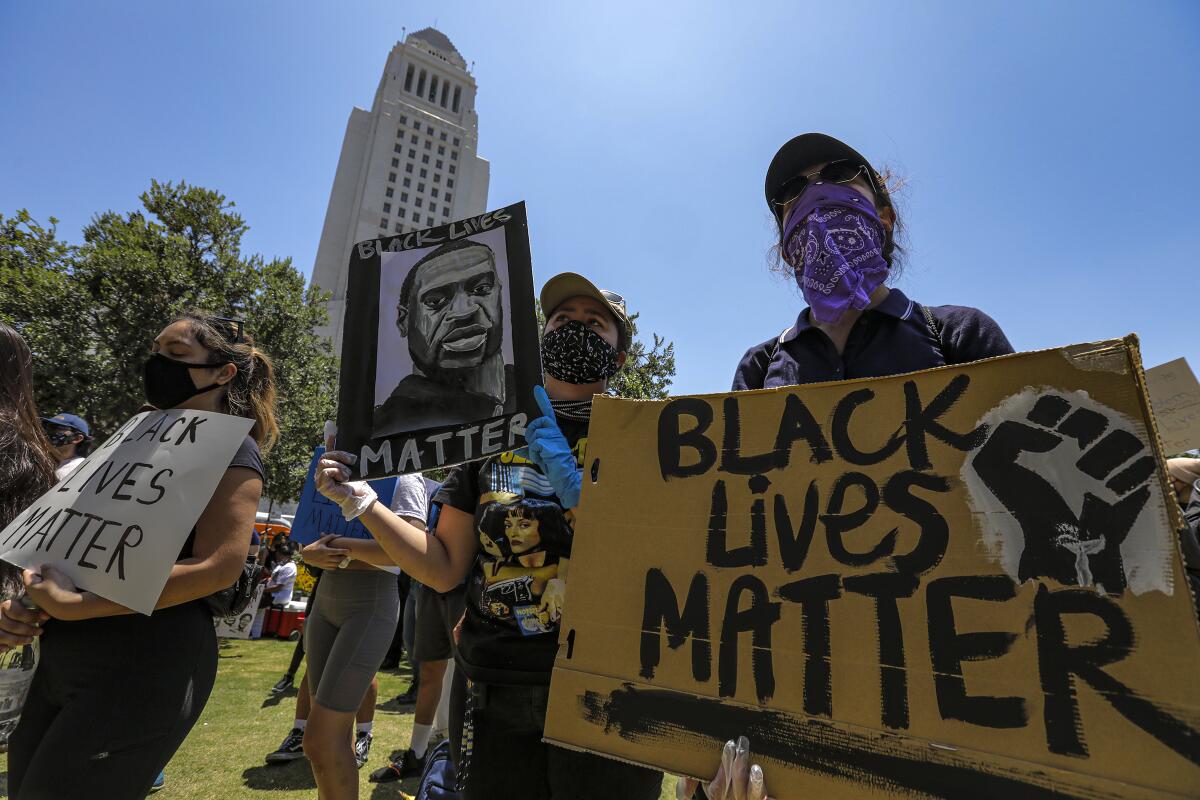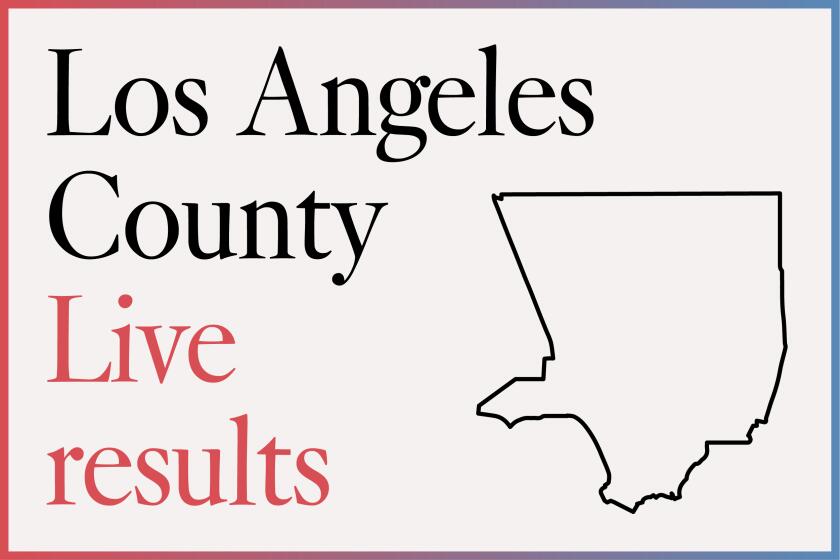L.A. County voters approve Measure J, providing new funding for social services

Los Angeles County voters have approved Measure J, which will divert more county money to social services and jail diversion programs.
The Yes on J campaign declared victory Tuesday evening, celebrating as results showed almost 60% of voters were in favor of the measure.
As of early Wednesday morning, 57% of voters had cast ballots in favor of the proposal, according to the results.
“For far too long the needs of our Black and brown communities fell on the budget chopping block and as a result these communities have paid the price,” said Eunisses Hernandez, co-chair of the Yes on Measure J campaign, in a statement. “Measure J will now change that.”
Measure J requires that 10% of locally generated, unrestricted county money — estimated between $360 million and $900 million — be spent on a variety of social services, including housing, mental health treatment and investments in communities disproportionally harmed by racism. The county will be prohibited from using the money on prisons, jails or law enforcement agencies.
The measure was placed on the ballot by the L.A. County Board of Supervisors amid growing calls for criminal justice reforms after a spate of local police shootings and the police killing of George Floyd in Minnesota.
Supporters said the police shootings gave momentum to long-standing efforts to increase non-law enforcement investments in communities of color.
“We have tried building political movements out of the loss of life in Los Angeles County and to fight just for some crumbs in the budget, and what we continue to be told is, ‘There’s no money for alternatives to incarceration, there’s no money to expand mental health’” and addiction treatment, Hernandez said.
Opponents of Measure J included the Assn. for Los Angeles Deputy Sheriffs, which spent more than $3.5 million on advertising on TV and social media.
While Measure J doesn’t call directly for police budget cuts, opponents say that money will inevitably be slashed from law enforcement, with L.A. County Sheriff Alex Villanueva, in a tweet, going so far as to raise the specter of a “Mad Max” future in the region if the measure passes.
Some believed the measure was rushed, including the League of Women Voters of L.A. County, which was neutral on the measure.
The league’s members believed the Board of Supervisors should have spent more time analyzing the effectiveness of current social services county programs.
Supervisor Kathryn Barger, the only of the five supervisors opposed to Measure J, said she didn’t support the voter question not because of the issues it was trying to address — she has long supported funding the organizations that will benefit from Measure J — but because the voter question went against her principles about how the budget should be crafted.
“This sets a bad precedent,” Barger said. “We were all elected to put together budgets each year and be transparent and get feedback from the public, and base our budget on the input we get.”
Political experts agree it wasn’t easy to determine how voters would swing on Measure J.
Many residents say they feel under siege by the people who are supposed to protect them.
Former Supervisor Zev Yaroslavsky said usually it’s important for the supervisors to make the case for a funding measure over a period of time.
“In this particular instance, the case was being made on national television every day from the murder of George Floyd forward,” said Yaroslavsky, who represented the 3rd District until 2014.
More to Read
Sign up for Essential California
The most important California stories and recommendations in your inbox every morning.
You may occasionally receive promotional content from the Los Angeles Times.













